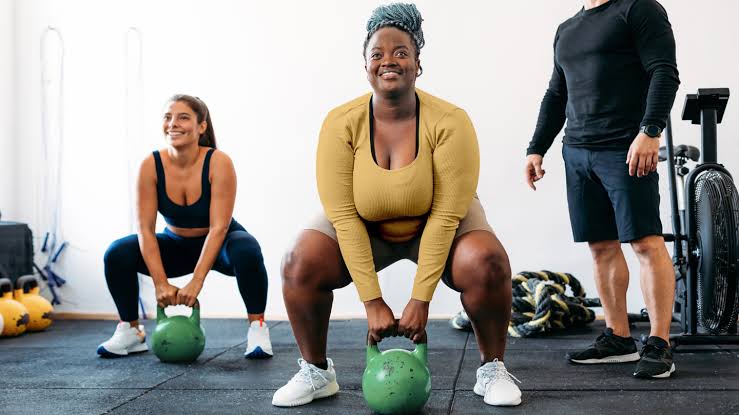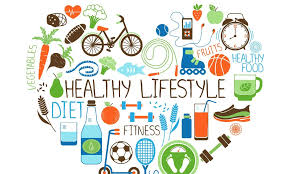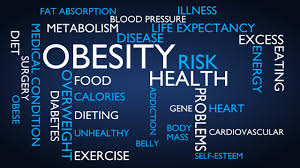In a world where our daily routines often involve sedentary work and convenience-driven lifestyles, maintaining fitness can seem like a daunting task. However, integrating fitness into your life is not only achievable but also profoundly beneficial for your overall well-being. This comprehensive guide will explore the essentials of fitness, offering practical advice, strategies, and inspiration to help you embark on your journey to a healthier, more vibrant you.

Understanding Fitness
Fitness is more than just a physical state; it encompasses the health of your entire body and mind. At its core, fitness is about enhancing cardiovascular health, muscular strength, flexibility, and endurance. But beyond these physical aspects, fitness also involves mental and emotional well-being. A balanced fitness regimen can improve mood, boost self-esteem, and reduce stress, offering a holistic approach to wellness.
Setting Realistic Fitness Goals
Before diving into a fitness routine, it is crucial to set realistic and achievable goals. Your goals should be Specific, Measurable, Attainable, Relevant, and Time-bound (SMART). Whether you aim to lose weight, build muscle, improve endurance, or simply adopt a more active lifestyle, defining clear objectives will keep you motivated and on track.
Specific: Define exactly what you want to achieve. For instance, instead of saying I want to get fit, set a goal like I want to run a 5K in under 30 minutes.
Measurable: Establish metrics to track your progress. This could be the number of workouts per week, distance run, or pounds lifted.
Attainable: Set goals that are challenging yet realistic. If you are new to exercise, aiming for a marathon in a month might be too ambitious. Start with smaller milestones.
Relevant: Ensure your goals align with your long-term health and fitness aspirations. If you want to improve overall health, focus on a mix of cardio, strength, and flexibility.
Time-bound: Set a deadline to achieve your goal. This could be a specific date or a timeframe, such as I want to lose 10 pounds in three months.
Building a Balanced Workout Routine
A well-rounded fitness routine includes a combination of cardiovascular exercise, strength training, and flexibility work. Each component plays a vital role in overall health and should be incorporated into your weekly regimen. Cardiovascular Exercise Cardiovascular exercises, also known as aerobic exercises, are crucial for heart health, stamina, and calorie burning. Activities such as running, cycling, swimming, and brisk walking improve cardiovascular endurance and help manage weight. Aim for at least 150 minutes of moderate-intensity cardio or 75 minutes of vigorous-intensity cardio per week, as recommended by the American Heart Association.
Strength Training
Strength training, or resistance training, is essential for building muscle, improving bone density, and enhancing metabolism. It involves lifting weights, using resistance bands, or performing bodyweight exercises like push-ups and squats. Aim for at least two days of strength training per week, targeting all major muscle groups.
Flexibility and Mobility
Flexibility and mobility exercises are often overlooked but are crucial for preventing injuries and maintaining a full range of motion. Activities like stretching, yoga, and Pilates enhance flexibility, improve posture, and aid in muscle recovery.
Nutrition and Hydration: Fueling Your Fitness Journey
Exercise alone is not enough for optimal fitness; nutrition and hydration play a crucial role in supporting your workout efforts and overall health. A balanced diet and proper hydration ensure your body has the energy and nutrients needed to perform and recover effectively.
Balanced Diet
A balanced diet includes a mix of macronutrients—carbohydrates, proteins, and fats—as well as essential micronutrients such as vitamins and minerals. Carbohydrates provide energy, proteins support muscle repair and growth, and fats are essential for overall health. Aim to eat a variety of nutrient-dense foods, including fruits, vegetables, whole grains, lean proteins, and healthy fats.
Hydration
Hydration is often underestimated but is essential for peak performance and recovery. Dehydration can impair physical performance, cause fatigue, and increase the risk of injuries. Aim to drink water consistently throughout the day, and adjust your intake based on exercise intensity and environmental conditions. Tips for Staying Hydrated: Monitor Fluid Intake: Drink water regularly, even if you do not feel thirsty. A good rule of thumb is to aim for at least 8 cups (64 ounces) of water daily. Consider Electrolytes: For intense or prolonged exercise, consider beverages that replenish electrolytes to maintain balance. Listen to Your Body: Adjust your hydration based on exercise duration, climate, and individual needs.















Alice
iGkur eXI laOHHWr